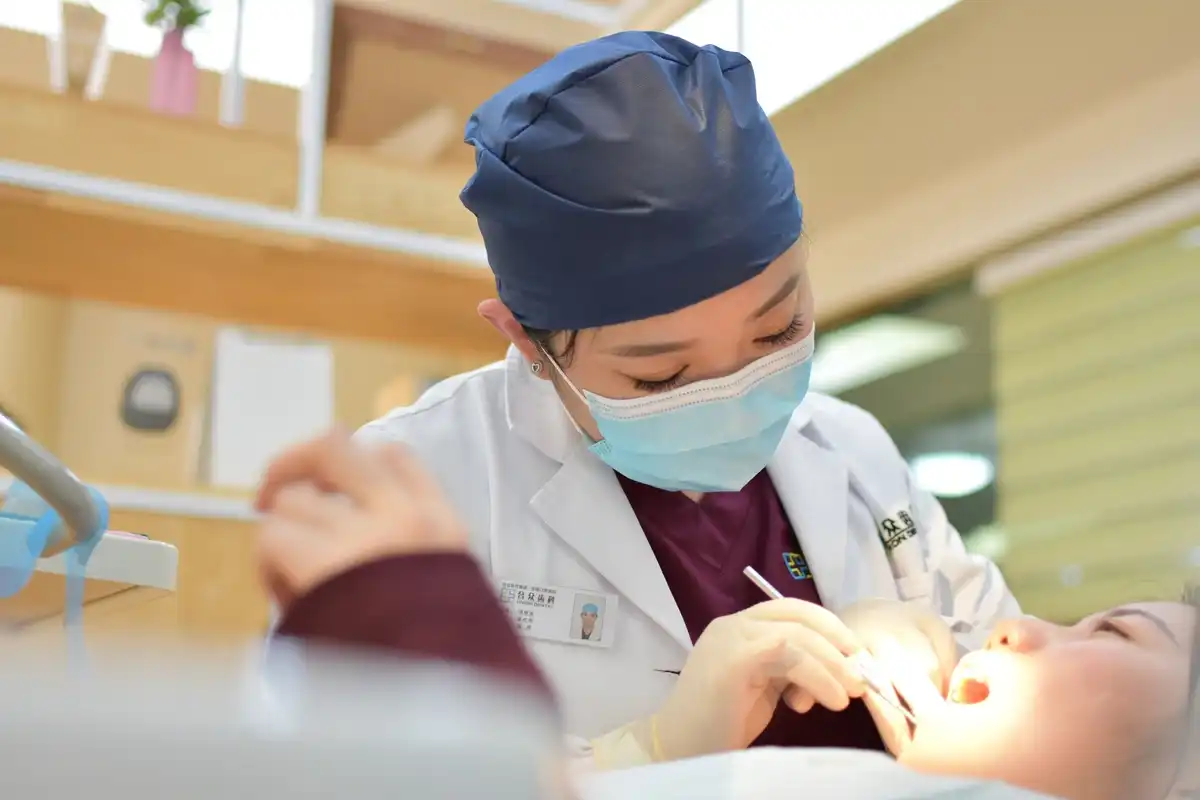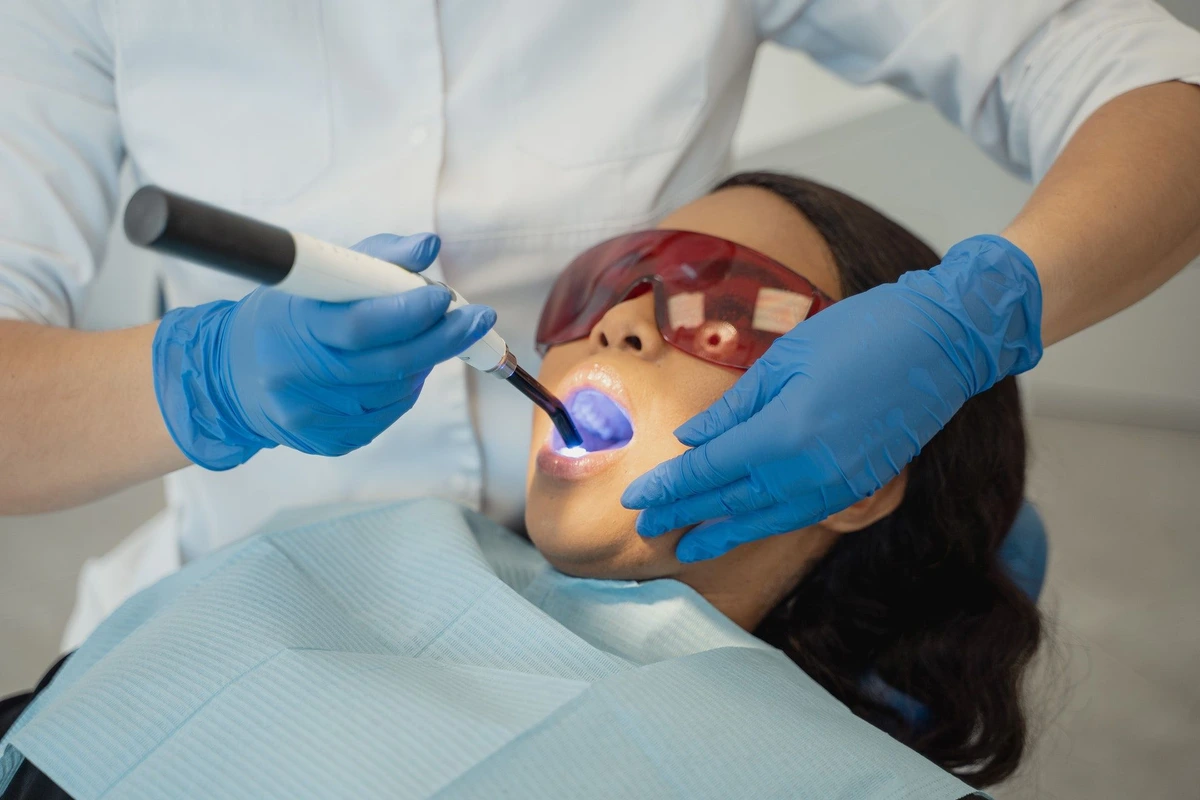Exactly How to Find a Good Dentist & Avoid the Bad Ones


Complete Guide To Finding A Good Dentist
If you’ve recently moved to a new area or maybe your dentist retired and you’re looking for a new one, you might be asking yourself how to find a good dentist. If you’re one of the thousands of people googling “find a dentist near me”, chances are you’ll have hundreds of results to sort through. How can you find the best one?
When looking for a dentist, having a plan in mind — and knowing what to look for — can help you find the best dentist in your area.
How To Find A Good Dentist
First off, understand that everybody is different. We all have our own opinions and preferences. Nobody is going to be able to please everyone. From the personality of the receptionist to how chatty the hygienist is or the dentist’s sense of humor, sometimes personalities just clash.
But when you know what matters the most, you can find a great “dentist near me” who can provide affordable dental services and care for you and your family’s smiles for years to come.
All of that being said, if you’re trying to figure out how to find a dentist, your top priority boils down to something we in the dental profession refer to as “Standard of Care.”
What Is Standard Of Care?
As long as a dentist is technically practicing under the standard of care, they are what you would refer to as a “good” dentist. From their guidelines for infection control to the type of treatment they recommend, you’re basically looking for a dentist who will treat you like you’re their favorite child (we’re joking, but you know what we mean.)
Unfortunately, not following the standard of care is what we would say makes a dentist “bad”. Then again, you might have a different opinion on the subject, especially if you just don’t connect with them on a personal level. But for the sake of the matter, we’re going to go beyond personal preferences, and focus on the ethical/moral standards of care that do make a “dentist office near me” one of the best.
What Should I Look For In A Dentist?
Dental insurance, office hours, and personalities aside, how to find a dentist that’s ethical, moral, and offers the best care can be broken up into five different things to ask about.
From there, you can go with your gut or just try them out for a checkup to see if their office is a good fit for you. There’s nothing that says you have to stay with a dentist’s office that you don’t like or feel comfortable in.
1. Do They Have Dental Hygienists?
When looking for a dentist, dental hygienists are a must! I might sound a little biased, but one of the first things I want to know about finding a dentist near me is if they have a dental hygienist. If they don’t, why?
Some dentists just like to do their own cleanings. That’s totally ok. But not having a hygienist could be a red flag that the dentist still has a fairly new practice and is growing their office. That isn’t a bad thing, but it does mean they won’t have as many years of experience as someone who, say, has 2-3 dental hygienists working for them.
When you call to schedule your first appointment, ask them who will be doing your cleaning. Is it the dentist, or the dental hygienist?
2. Quality Of Care
When you have a checkup scheduled, ask if the dental hygienist is performing a routine perio chart during your visits. Confirm how often they do it. If the office isn’t checking your gums and measuring your bone levels around your teeth, it’s a red flag that they’re not practicing the standard of care.
Routine perio charting doesn’t mean they’re calling out hundreds of numbers ever visit, but it does mean that they can show you your perio charting if you ask. If you’re curious, just ask your dental hygienist if you have any gum pockets and if so, where they are. You need to know because it can keep them from getting any worse.
3. How Long Is A Standard Dental Cleaning?
Next, ask how long the dental cleaning appointments will take. Your hygiene visit shouldn’t ever - ever - and we repeat, ever, take less than 15 minutes to clean your teeth (well, unless you’re a kid, and then it’s totally normal because your teeth are smaller.)
If you’re in and out in 10 minutes, go somewhere else. Even if you have the cleanest teeth in the entire world, it takes longer than that to measure your gums, scale away plaque, and polish all of your teeth. There’s no way to physically do a good job taking care of your mouth if the dentist or hygienist is only spending 10-15 minutes with you, max.
Normally you can expect to be at a dentist’s office for anywhere from 45-90 minutes for a new patient appointment or checkup. The length depends on if you’re getting an exam, cleaning, X-rays, etc. Some visits will be shorter or longer than others (your first appointment will tend to be the longest.)
You shouldn’t ever feel rushed. If you do, there’s probably more of a chance that your oral health is at risk of getting looked over.
4. How Often The Office Takes X-Rays
Although most dentists in your area will always — as a courtesy — mention if your dental X-rays are covered by insurance, they shouldn’t use your insurance benefits as a guide for which services they offer you.
On the other hand, most healthy people need “bitewing” X-rays about once a year. Those films are to check the areas between your teeth, where you tend to get cavities. People who are more prone to decay might need bitewings every six months.
If your dentist or hygienist says it’s time to take X-rays because your insurance says you’re due, it could be a red flag.
5. Infection Control
If your dentist and his or her office aren’t practicing proper infection control, it’s time to consider a new dentist.
By infection control, we’re talking about things like wearing gloves, masks, cross-contamination (where something dirty touches something clean, and germs get spread), and proper sterilization of all dental instruments.
A good way to know if your instruments are sterilized is if your dentist or hygienist is opening the sterilization pouch there in the room. Sometimes they open it up earlier and cover it before you step in.
An easy way to find out if there’s a good infection control program in your dentist’s office is to ask for a tour of their practice. When you get there for your checkup, just ask if they can show you around! If they’re hesitant to show you the sterilization area, it might be another red flag.
Is anyone touching things with their bare hands that they shouldn’t be? Like an instrument or suction? If they are, they might be lax in other areas of infection control. That’s not the definition of a good dentist’s office!
The Search For A Quality Dentist
Now that you know what makes a dentist “good”, it’s time to find one in your area. Although a lot of people start with looking for a dentist in their insurance plan, finding a good dentist is easy when you follow these three tips:
Use a Dentist Near Me Map
You can look up most dentists online to see who is in your area or within driving distance of a dental office. Not only that, but a lot of online search engines and dental review websites make it easy to see the office’s “rankings” compared to others in the area.
Online reviews
Patient reviews can help get a preview of the dental care they provide. However, just know that people are much more likely to leave bad online reviews than good. Don’t let a stranger’s one-off experience deter you from seeing a good dentist.
Ask Your Family and Friends
Chances are, if your neighbors or your kid’s classmate’s parents all like the same dentist, you’ll probably like them to. Ask around to see which dentist the locals recommend.
Visit an Accredited Dental School
If affordability or finding a cheap dentist is one of your biggest priorities, you don’t want to sacrifice price for quality. On that note, you can get great care from dental or dental hygiene schools. Just be warned, you’ll probably spend 2-3 times the length of time you would in a regular dentist’s office.

Partner With Your Dentist
Your dentist is your partner in oral health. To make sure they’re putting your best interests first, the best dentists will have their patients help to co-plan the dental care and treatment they need.
Basically, your dentist should share their findings with you, giving you options when it comes to the treatments appropriate for your unique smile. For instance, if you have a large cavity, they might recommend a crown, but warn you that there’s a possibility that the cavity is so close to your nerve that you’ll need a root canal. Or if you need a dental filling, they can give you the choice of a white or silver.
Good dentists also tell you what’s possible for your teeth, without making it seem like it’s a treatment you have to have. Like if there are a few teeth that are crooked, they might mention options like orthodontics if you want to improve the way they look. They keep optional treatment, well, optional.
Meet The Dentist
Meeting a new dentist in person can help you find out if they’re a good fit for you. Personalities, dental office policies, and overall attitudes of the staff can make a dentist's office seem like a place you’re comfortable — or one where you don’t want to be at all.

Know When To Go To The Dentist
So, something that a lot of people might not think about when they’re searching for a “dentist near me” is that they might be waiting too long to see a dentist. By the time they get in, they’re frustrated that the dentist tells them they need a bunch of different treatments, then you get mad, and then you think it’s a bad dentist’s office because they’re over-diagnosing conditions.
To keep your smile healthy and reduce the amount of treatment you need, it’s better to schedule preventative checkups every six months. That way undiagnosed issues don’t have a chance to get worse without you knowing about them.
Dental Emergencies
If you’re waiting to find a dentist until you’re in the middle of a dental emergency, you’ll already be stressed, frustrated, and possibly in pain. It’s not really the best time to try to find a good dentist, because the majority of emergency appointments are actually squeezed into the office’s regular schedule.
This whole situation creates the perfect storm for not being thrilled with seeing any dentist whatsoever.
However, a good dentist will usually have special times set up throughout the day or an overflow room to accommodate dental emergencies. Yes, even for new patients who haven’t ever been to their office.
See The Right Type Of Dentist
Not all dentists are created equal. Some are dentists who specialize in specific types of treatment and spend 3-4 more years in college to be experts in their field. Others are general dentists who offer basic care for the entire family. Even some general dentists have training in specialized services so that they don’t have to refer patients to another clinic.
If you need or want a specific service, ask the dentist’s office if it’s something they offer. They might not, and then you’ll need to call around to find someone else.
7 Types Of Dentists
General/Family Dentist
All dentists start out as general dentists. They have 4 years of education in family dentistry, providing lifelong oral health care and restorative services. This is your typical dentist’s office.
Most people like having a family dentist because they can pick an office and stay there. Your family grows up with them. If there’s an emergency, you already have an ongoing relationship with the dentist and their office. It’s easier to schedule everyone’s checkups in the same place, or at the same time.
Orthodontist
These are your specialist dentists who provide orthodontic therapy. Their offices will only provide treatments related to braces or aligners, but they usually see people of all ages.
An orthodontist will offer various types of braces, aligners, orthognathic treatments, and growth modification therapies. Your dentist will refer you to an orthodontist if you need your teeth straightened or have a significant malocclusion (misaligned teeth and jaws).
Oral And Maxillofacial Surgeon
Oral surgeons are the specialists that you see if you need some type of hard or soft tissue therapy in the oral anatomy around your teeth. They also provide wisdom tooth extractions with sedation/anesthesia so that you can “sleep” through the appointment.
Some of the other common oral surgeon treatments include dental implant placement, cleft palate repair, sinus lifts, or jaw reconstruction. Essentially, they bridge the gap between a dentist and a traditional medical surgeon, specializing in oral, head, and neck anatomy.
Periodontist
When you have aggressive gum disease that isn’t responding to traditional dental treatment, your dentist will probably refer you to one of these gum experts.
Periodontists also provide dental implant placement, gum grafting, bone grafting, gingivectomies/gummy smile treatment, and of course gum disease treatments.
In most cases, gum disease patients will usually alternate visits back and forth between their general dentist and their periodontist, at least until their gum health is under control.
Prosthodontist
When you need full mouth reconstruction, oral rehabilitation, or even expertly designed restorations like ceramic crowns and veneers, or dentures, a prosthodontist is your go-to point person. They specialize in restorative treatments that enhance your oral function and appearance.
Prosthodontists can also help you design custom dentures and fixed implant prosthetics. They usually work closely with your general dentist or implant provider. But prosthodontic offices also provide a wide range of restorations that you won’t necessarily see in other specialty practices.
Endodontist
These are your “root canal experts.” If your dentist wants to help you save a tooth instead of extract it, but you need more than just a basic root canal, they’ll send you to an endodontist.
Endodontists manage chronic tooth sensitivity, cracked teeth, abscessed teeth, fractures, and root canals in teeth with curved or twisted roots. They also provide re-treatments. Usually, endodontists have special equipment like microscopes to see down into the nerve canals.
Other Dental Specialists
Pediatric dentists are probably the most common type of other dental experts that families are used to seeing. These experts specialize in seeing young children, kids with special needs, and teens before they head off to college.
There are other specialists who are a bit less common, like oral radiologists and oral pathologists. You might see one of them if you need cancer treatment or have a unique condition that requires a special medical diagnosis.
Paying For Dental Work
Dental Savings Plans
Dental discount plans are great for families or individuals that are looking to save 10% to 60% on the average cost of dental care. Dental plans are nationwide with over 100,000 dentists in the program, see if you can save with a dentist near you.
Dental Insurance
You can sometimes see a dentist that’s not in your insurance network without paying a lot extra. This varies on a case-by-case basis, so you need to ask your insurance company about in-network vs. out-of-network benefits. Depending on the situation, it might be worth paying 10% more for dental services to see your favorite dentist, even if they’re not part of your insurance network.
Keep in mind that insurance usually caps the amount you can use towards dental care, regardless of how much dental treatment you truly need. Learn more about getting dental work without insurance.
Payment Plans
Dental financing is usually available at most dental offices. The best dentist will make it easier for you to access the care you need without worrying how you’re going to pay for it. 0% and low-interest payment plans make it easy to afford low monthly amounts to start on dental treatment right away.
You can usually combine financing with your insurance benefits and start treatment on the same day.
Key Takeaways When Looking For A New Dentist
The next time you’re googling “the best dentist near me” or “best dentist offices” keep in mind that “best” is relative. The most important thing you can do is to make sure your dental team follows the standard of care when it comes to recommending treatments, infection control, and the amount of attention they give to your smile.
If you feel rushed, think the office isn’t cleaning things well enough or pushes you into getting dental treatments that you don’t want or need, these can all be red flags that you need to go somewhere else. And when worst comes to worst, it never hurts to ask your friends, family, and neighbors who they trust for their smiles!

Make your inbox smile!
Subscribe






